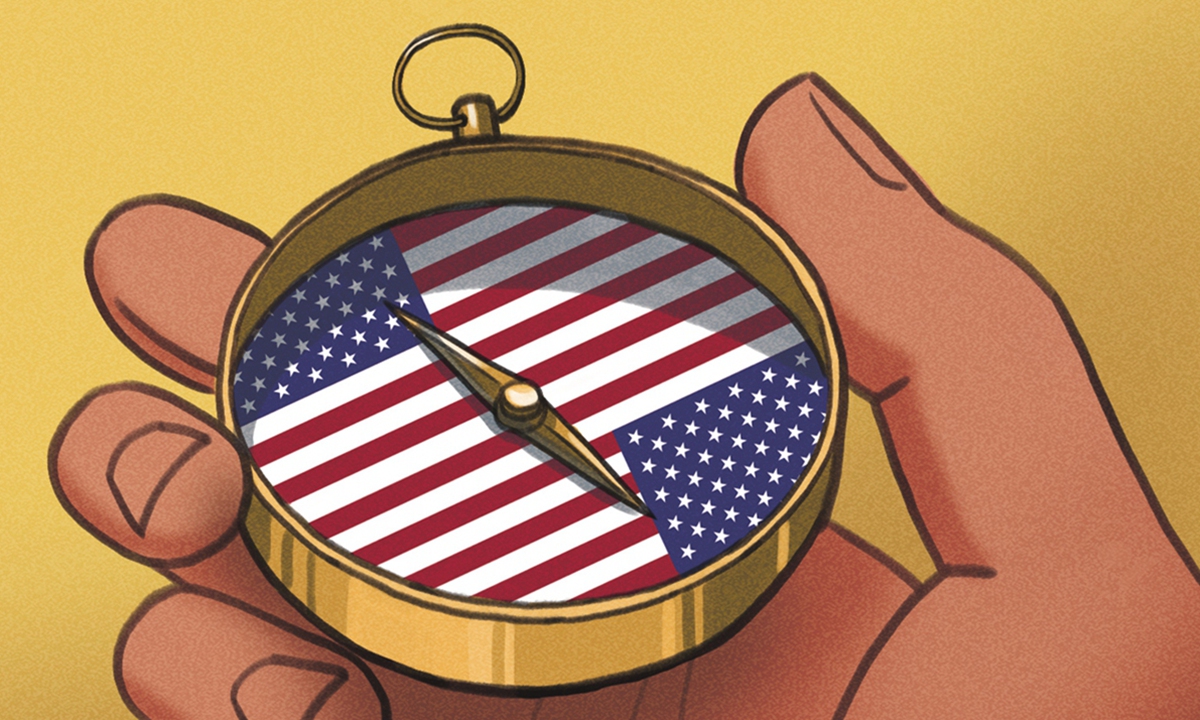New US allies plan spins China and Russia threats to stay afloat
By Zuo Xiying Source: Global Times Published: 2020/10/21 21:41:21

Illustration: Liu Rui/GT
US Secretary of Defense Mark Esper revealed a new initiative on Tuesday to strengthen and expand US alliances with "like-minded democracies" to counter Russia and China, according to AFP.
The initiative, called the Guidance for Development for Alliances and Partnerships, is a comprehensive approach to strengthen alliances and build partnerships, Esper said when speaking at the Atlantic Council in Washington, DC.
"America's network of allies and partners provides us an asymmetric advantage our adversaries cannot match," Esper said, calling the network "the backbone of the international rules-based order."
It seems that after nearly four years of the Trump administration's efforts to restructure and even dismantle alliances with its "America First" agenda, China hawks in Washington like Esper are attempting to amend the widening cracks in relations between the US and its allies with the purpose to counter "adversaries" - especially Russia and China - by reinforcing US alliances.
The first term of the Trump administration is coming to an end. The past four years have seen Trump's actions upset US allies, causing declining trust in Washington and leading the alliances into deep trouble.
US allies have expressed great dissatisfaction toward the White House. First, Trump brought up the issue of defense-cost sharing, demanding greater contributions from countries including South Korea and Japan to support the US military presence on their respective soils. Second, in terms of diplomatic principles, the White House has prioritized "America First" while its Western allies emphasize multilateralism. The latter attach great importance to international institutions and rules. Third, the arrogant US doesn't show due respect to its allies. However, when it comes to issues related to China, especially what they perceive as "China threats" and China's expanding influence, they seek to generate a relatively aggressive consensus.
Therefore, Esper hailed the power of US allies and partners and he stressed "the importance of aligning with like-minded nations, large and small." These so-called like-minded countries mainly refer to countries that have different political systems from China and Russia.
The existence of China and Russia has been considered as an important factor for the US and its allies to maintain their unity. China's increasing strength and expanding influence have provided a strategic opportunity for the US and other Western countries as well as certain countries surrounding China to jointly cope with the so-called China's challenges. For instance, newly installed Japanese Prime Minister Yoshihide Suga visited Vietnam in his first overseas trip recently. One of the reasons for this choice is that Tokyo and Hanoi have common interests to deal with Beijing. If there are no so-called China or Russia threats, then the cohesion between the US and its allies will drastically decline.
However, Esper's initiative came just two weeks before the US presidential election. If Trump gets reelected, it's highly likely that US unilateralism will continue to prevail. But if Joe Biden wins, the US may return to multilateralism to mend fences with its allies. The US may enhance its relations with its allies and partners to some extent. But no matter what, forming an anti-China alliance is a tough task. Meanwhile, through diplomatic efforts over the past years, China's relations with many surrounding countries have greatly improved. There are increasingly entangled interests between China and the US and its allies.
The US has been the sole superpower in the world since the end of the Cold War with its unprecedented dominance. However, with the deepening of globalization and development of science and technology, the strength of emerging countries represented by China is rising. Meanwhile, US strength is declining.
Accordingly, the US will not have the sort of huge advantages it had in the past. It has to recalibrate its foreign policies and adapt to a changing and more balanced world. It has to adjust its mind-set and learn to respect the interests of countries like China and Russia on both regional and global levels. If it continues to be obsessed with a unipolar world and superpower mentality, the international world will remain in a highly unstable state.
The author is an associate professor at the School of International Studies, Renmin University of China. opinion@globaltimes.com.cn
Posted in: VIEWPOINT